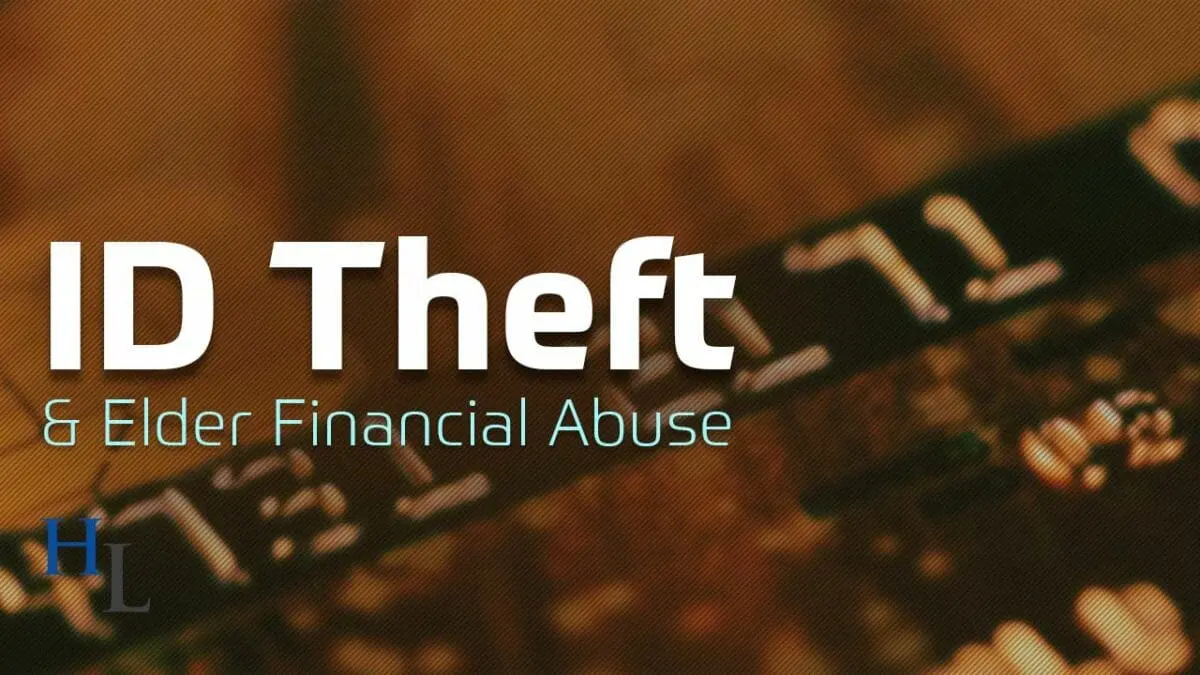
Identity Theft Against the Elderly | CA Penal Code §530(a)
I’m Mike Hackard with Hackard Law. We litigate estate, trust, and financial elder abuse cases in California’s Superior Courts.
We’re civil litigators. County District Attorneys, the California Attorney General, and the United States Attorney’s Office criminally prosecute financial elder abusers.
While we litigate in the civil courts, we learn a great deal from how law enforcement litigators prosecute financial elder abusers in the criminal courts. There are many criminal statutes that financial elder abusers may violate. For now, I’m going to focus on California Penal Code §530(a), a felony, that addresses identity theft.
There are three elements that define this violation. The first element is that the defendant willfully obtained someone else’s personal identifying information. For purposes of this statute, personal identifying information includes a credit card, checking account number, date of birth, and PIN or password.
The second element requires a showing that defendant willfully used someone else’s personal identifying information for unlawful purpose. For purposes of the statute an unlawful purpose includes obtaining goods, services, or real property without the consent of the other person.
The third element requires evidence that the defendant used the personal identifying information without the consent of the person whose identifying information he was using.
Our aging population is target one for identity thieves. Seniors can be more trusting. They have more savings and home equity built up. They may also be less likely to monitor their credit and financial accounts.
We at Hackard Law serve clients – often heirs and beneficiaries – who have estate, trust, and elder financial abuse litigation issues. Sometimes identity theft is a part of these litigated cases.
If you’d like to speak with us at Hackard Law about your case, call us at 916 313-3030. We’ll be happy to speak with you.
Hackard Law: Attorneys Making a Difference.

 (916) 775-8542
(916) 775-8542